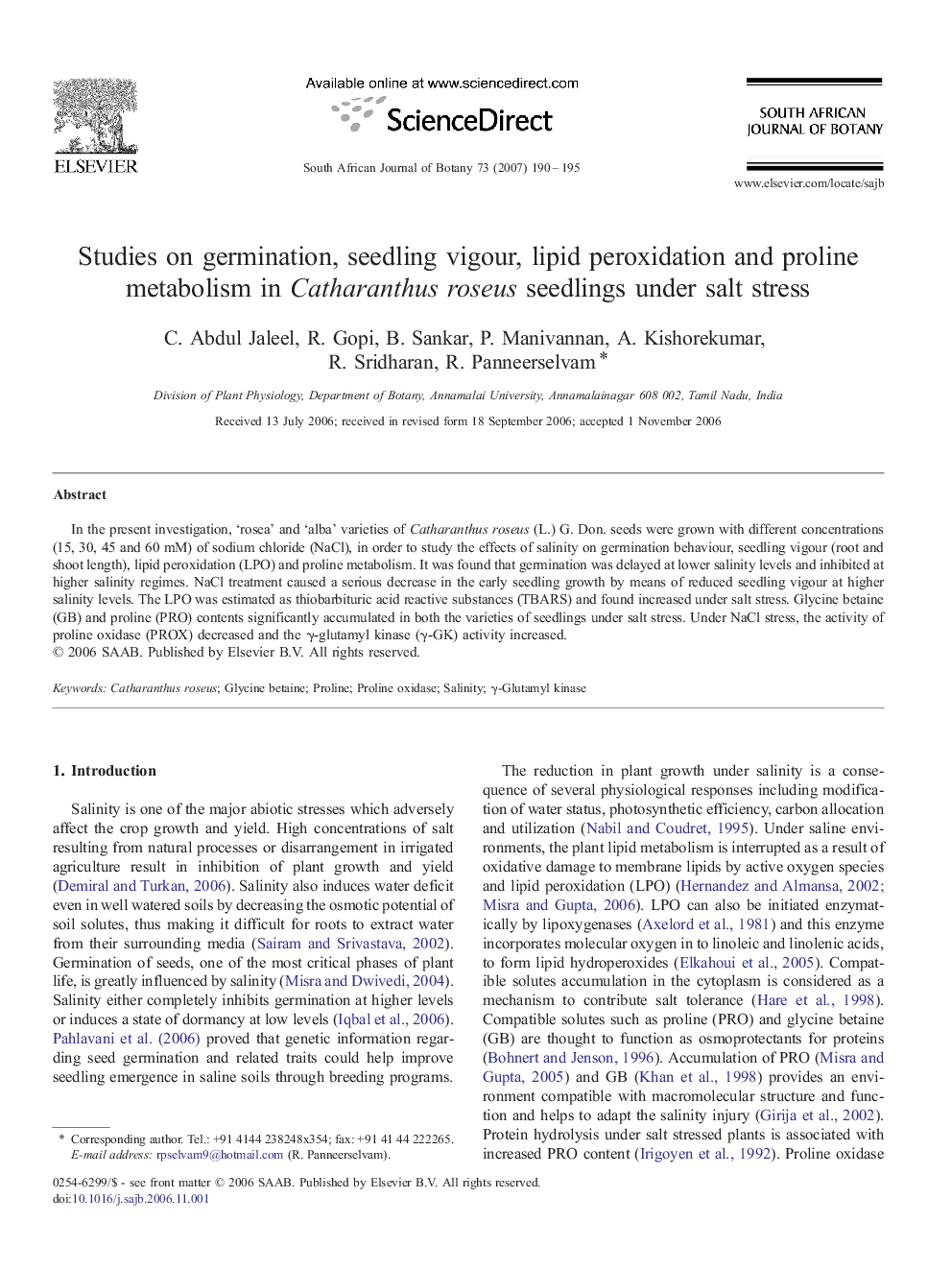| Article ID | Journal | Published Year | Pages | File Type |
|---|---|---|---|---|
| 4521889 | South African Journal of Botany | 2007 | 6 Pages |
In the present investigation, ‘rosea’ and ‘alba’ varieties of Catharanthus roseus (L.) G. Don. seeds were grown with different concentrations (15, 30, 45 and 60 mM) of sodium chloride (NaCl), in order to study the effects of salinity on germination behaviour, seedling vigour (root and shoot length), lipid peroxidation (LPO) and proline metabolism. It was found that germination was delayed at lower salinity levels and inhibited at higher salinity regimes. NaCl treatment caused a serious decrease in the early seedling growth by means of reduced seedling vigour at higher salinity levels. The LPO was estimated as thiobarbituric acid reactive substances (TBARS) and found increased under salt stress. Glycine betaine (GB) and proline (PRO) contents significantly accumulated in both the varieties of seedlings under salt stress. Under NaCl stress, the activity of proline oxidase (PROX) decreased and the γ-glutamyl kinase (γ-GK) activity increased.
